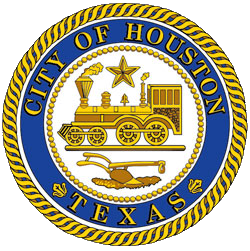HOUSTON - As the City of Houston's Office of Emergency Management (OEM) monitors any potential impacts from Tropical Storm Hanna, staff continue to update and test disaster response plans.
In June and July, OEM staff partnered with the Houston Health Department, Houston Police Department, Houston Fire Department, BARC, and external partners including the Texas Division of Emergency Management and the American Red Cross to conduct the annual Evacuation Hub Exercise. Goals of the exercise include testing emergency operations coordination, critical transportation, mass care services, and health and social services during a hurricane evacuation.
"We have been advising the public that hurricane planning may be different this year because of COVID-19. The city has also been doing its part to update our emergency plans," said Mayor Sylvester Turner. "An exercise like this helps our city test these updates and better prepares us to respond in the event a real disaster strikes."

The Evacuation Hub Exercise is held annually at the George R. Brown Convention Center and allows participating agencies to test plans and procedures related to the registration and tracking process for evacuating people and animals to locations outside of Houston. In previous years, city staff partnered with volunteers to test components of the Evacuation Hub. This year, staff worked with Houston Television (HTV) to film segments of the exercise and later held a virtual tabletop discussion to evaluate and provide feedback on the new procedures due to COVID-19.
"This year's exercise tested new screening processes for evacuees, including no-touch temperature checks, social distancing guidelines, cleaning procedures for the facility and equipment, and new quarantine and isolation procedures," said Nickea Bradley, Emergency Management Coordinator for Houston OEM. "Tropical Storm Hanna's development in the Gulf of Mexico is a reminder to the public that hurricane season is in full swing, and residents should update their plans, build their disaster kits, stay informed of official updates, and get to know their neighbors."

Objectives of the annual exercise include a full-scale test of the emergency tracking network (ETN), a technology used locally that interacts with the state in a web-based program to register and track evacuees. Other objectives focus on the steps necessary to determine, coordinate, and provide various needs post-hurricane for impacted populations to sustain mass care operations, such as clothing, medications, transportation, housing, and health care services.
Hurricane Preparedness During the COVID-19 Pandemic
The City's emergency managers, shelter managers, and public health professionals are taking measures to reduce the possible spread of COVID-19 among people who seek safety in a disaster shelter during severe weather events. Here are some tips to help you prepare and lower the risk of infection while staying safe in a shelter:
- If you need to evacuate, prepare a “go kit” with personal items you cannot do without during an emergency. Include items that can help protect you and others from COVID-19, such as hand sanitizer, or bar or liquid soap if not available, and two cloth face coverings for each person.
- Practice social distancing. Stay at least 6 feet from other people outside of your household.
- Follow Center for Disease Control (CDC) and Houston Health Department COVID-19 preventive actions—wash your hands often, cover coughs and sneezes, and follow shelter policies for wearing cloth face coverings. Avoid sharing food and drink with anyone if possible.
- Follow disaster shelter policies and procedures designed to protect everyone in the shelter, especially those who are at higher risk for severe illness from COVID-19, including older adults and people of any age who have serious underlying medical conditions.
- If you feel sick when you arrive at the shelter or start to feel sick while sheltering, tell shelter staff immediately.
- Teach and reinforce everyday preventive actions for keeping children healthy.
- Be a good role model—if you wash your hands often, your children are more likely to do the same.
- Help your children stay at least 6 feet away from anyone who is not in your household.
- Watch your child for any signs of illness and tell shelter staff if your child may be ill.
- Help children cope with emergencies: try to deal with the disaster calmly and confidently, as this can provide the best support for your children.
Learn more about updating your hurricane preparedness plans to protect you and your family from COVID-19: https://bit.ly/hurricanecovidprep
Potential Houston-Area Impacts from Tropical Storm Hanna
Although the track has shifted southward, some impacts will likely extend into Southeast Texas and parts of Houston. Tropical Storm Watches for coastal areas of Houston previously in effect have been cancelled this morning. The primary risk will be short-term street flooding if incoming storm rain bands stall or move repeatedly over the area.
Residents are urged to register for AlertHouston at www.AlertHouston.org to receive timely, geo-targeted weather alerts for their area.
About: The City of Houston Office of Emergency Management (OEM) is the chief coordinating agency for disaster response in the nation's fourth-largest City. OEM provides emergency response coordination and communication assistance to City agencies and serves as liaison to regional, state and federal agencies during times of emergency. In addition, OEM engages with the local community to promote emergency preparedness through a variety of initiatives. More information can be found at houstonoem.org.
